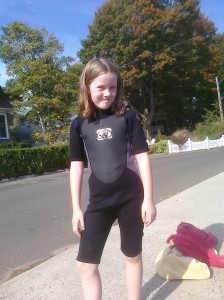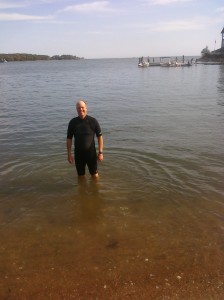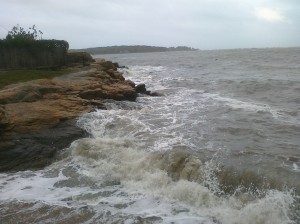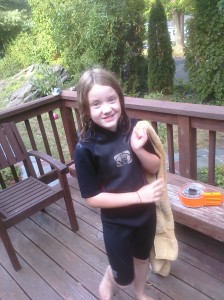I remember this time of year — that awkward pause between the last swims of fall and the closing-in of the season. I don’t really want to go to the pool, b/c that would be admitting that’s where I’ll be all winter, but I can’t easily get into the water. Olivia says she’s got a swim or two left in her this year, but the tide wasn’t right last weekend.
So I’m running instead, & left home this afternoon around 2 pm under bright sunshine. Heard a slow rippling grumble as I passed the post office. A sharp crack at Sweet Bears, our local coffee-shop-cum-ice-cream outfit. The sun blazed off the sound to my right & I thought I’d get my short run in before any storm came. The wind had been off the water when I’d left home.
The rain started as I was running down Double Beach Road toward the headquarters of CT Hospice (formerly the Double Beach Club & still a great place to swim — long story). The wind now came from the northwest, inland. It blew hard, making a cold, sharp staccato on my shoulders and back.
Hail mixed in as I turned into the Turtle Bay condo complex, & I started to think about the physical properties of water. All three states surrounded me: liquid rain, solid ice, and water vapor. Shakespeare talks about a “sea of air” somewhere, Timon I think. No need to get in the Sound to get wet today.
By the time I got home I was soaked, and the sun was shining. What was it Mark Twain said about the weather in CT?





